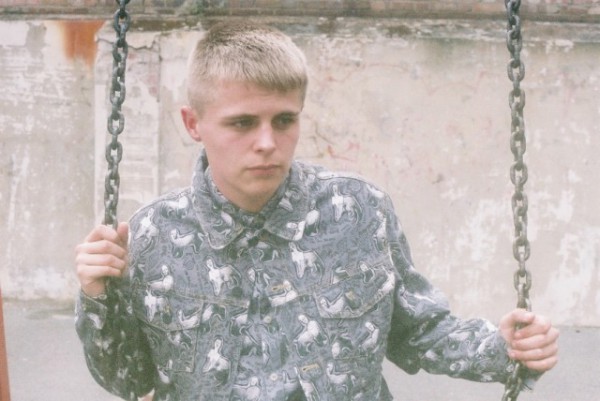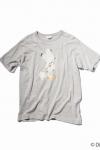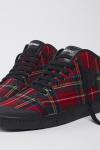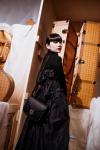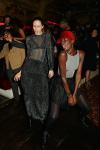
“The RCA has been a roller-coaster ride of ups and downs,but thats life,I have learnt something from every single experience”
-Tell us a bit about yourself:
I am a 24 year-old designer who was born in Nottingham, moved all over, and ended up being raised between Malaysia and Harrogate, where I went to boarding school. The ambition was always to become a dentist and make enough money to quit that and set up my own fashion label. Luckily, sense kicked in at the 11th hour, I gave up caring about revising for my chemistry A-level exam, and I got to bi-pass the dentistry bit. I began to apply the same work ethic to my art as I had always done to my maths and english, etc, and somehow I ended up at the Royal College of Art. My home is now between my parents in Singapore (yes they’ve moved again!) and Surrey where I live with my boyfriend and cats. Growing up between UK and Asia opened my eyes to different cultures and gave me a brilliant perspective on shape and colour and spirituality. I have injected my belief in karma and balance into my working methods as well as my day-to-day life, and this has allowed me to grow as a designer over the 6 years. Outside of fashion and art, I don’t have many hobbies, except for going to the gym and travelling. If i’m not being creative, I’m not enjoying myself!
I am also a huge advocate for the protection and welfare of animals and will never use fur, and when I rarely use leather it must be a bi-product. So thats me!
-Tell us about your graduate collection in RCA:
This collection is the clothing to accompany the brand I have been building for myself, Courtney Mc (pronounced ‘Mac’). The inspiration, in the end, was very simple. I blogged nearly every day for months about things that were inspiring me, and what I discovered was that I ultimately wanted to be respected by the men in my life, my friends, my boyfriend, my family. I never wanted to be one of those pretty girls who had to get their legs out for some attention, I wanted to be admired and respected for my talent, my individuality and my strength, especially because I do like to be one of the boys. So that all fed into my collection; I looked at what these guys were wearing and mixed it up and made it original, current and exciting. I added texture and shape and print, and made it bold but classy. There are touches of femininity because I wanted the collection to still have delicate elements that reflect me as a person. I can look at my collection and see my whole life story word-for-word in front of me, and, although others wont be able to, they will be able to see a conflict between love and frustration in the pieces, which is a great juxtaposition. I enjoy calling it the chav collection because it is also about my fascination with boys on the street. Hopefully they wont stop inspiring me for many years to come. The artist Jamie T, for his image as well as his music, has been my muse and a sort-of imaginary rock to cling to when I felt I was being drowned my the pretentious bull-shit surrounding me, so thank you Jamie!
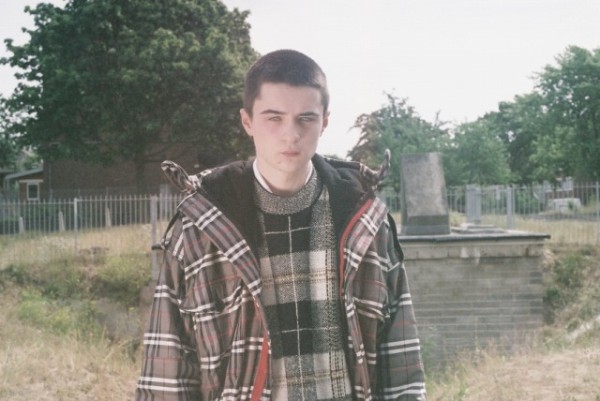
-How was the experience working with Umbro, adidas and Brioni? How was working with these big compamy? Has it influenced your work?
Working with Umbro was fantastic because I was given the freedom to do whatever I wanted. I developed a huge amount as a designer with their support, and it was at that point in my career that I began to develop a very personal visual style, in terms of my inspiration and photography. Brioni was a unique experience. I had never tailored before so I had no idea what I was doing, but I gave them a design and they realised it! They also flew me and the rest of my class to Italy to visit their factory and to study in their tailoring school. I am now quite skilled at construction ad I apply the methods I learned at Brioni to my own designs, even the casual pieces. I am committed to high quality and good attention to detail in my work, which are often missed in photographs, but are vital to my aesthetic. (Adidas haven’t actually seen the collection I designed for them. I just did it in the hopes that one day they might look at my work. They are a huge influence to me in terms of concept, marketing and branding, and I would love to have a label to rival them).
-What does ‘fashion’ and ‘fashion design’ mean to you?
After I completed my Diploma, my tutor told me to go away and really think about what fashion is. It was probably the best piece of advice i’ve ever been given. I don’t know if I could put it down in words properly, but I think fashion is the difference between creating something, and creating something relevant; fashion is all about relevance. And fashion design is an incredible art, which allows us to change the way we represent ourselves, and change the visual image of our society. I have had so many people laugh in my face at the idea of fashion, and it angers me, but it is because they are ignorant or scared or don’t understand it importance.
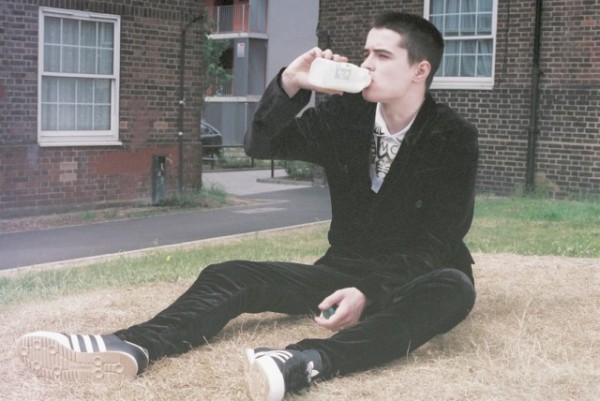
-Is there any designers or creators that had strong influence of your work?
Initially it was Yohji Yamamoto who had the largest influence on me, and also brands like Adidas, Stone Island, Maharishi and Dr. Romanelli. But after 6 years of studying you become your own influence. It is nice to start ignoring trends and what other designers are doing, and just focus on yourself. Its far less confusing. I do secretly look to womenswear for menswear inspiration, however, because it does bring about some exciting ideas for ways to play with fabric and silhouette.
-Why did you choose menswear design?
I chose menswear because it was a natural progression for me. It was something I preferred doing and was good at. I attempted womenswear but it didn’t work. I think my close bond with the men in my life influenced this, as well as my vast amount of male friends. We all joke in the studio, saying all us female menswear designers have penis envy, and we probably do! We’re all strong women, fighting for the respect of men. I think I will progress into womenswear though. I used some lace and boning techniques in my graduate collection which originate from womenswear. What is the difference between menswear and womenswear anymore? Apart from the bizarre stereotyped divides on the high-street, its pretty much all the same. Maybe I’ll open a unisex boutique.
-Tell us a bit about RCA. What was it like studying there?
The RCA has been a roller-coaster ride of ups and downs, but thats life, and I have made sure I have learnt something from every single experience. I learnt so much in terms of design and manufacture, as well as people skills and dealing with the reality of the fashion industry. Its been a privilege to study there, on the only menswear masters in the world, and work with such distinguished tutors, and such competitive students. The pressure has been on and i’ve really pushed myself, and I will continue to do so.
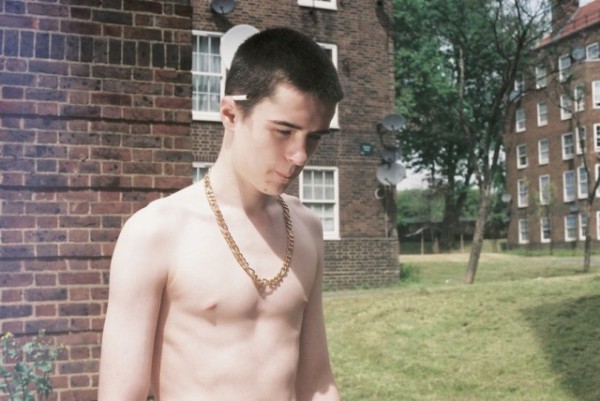
-What do you place most emphasis on in fashion design?
I place most emphasis on quality, I think, and coming up with a concept that is personal and original. I could re-design every season with new shapes and styles, but the key aspect is the quality of the fabric, the precision of the cut, and the excitement of the concept.
-How would you describe your own personal style?
My personal style is a tad boy-ish; i’m a massive fan of carrot-leg trousers and t-shirts. On the occasion that I feel like dressing up I love Phillip Lim and Prada. I have always carried a designer bag, and never take off my antique jewellery.
-What are the difficulties faced being a designer today?
The difficulties you face as a designer today are funding and job competition. If you set up on your own it is very difficult to find the capital to support yourself. I know of many designers are the top of their game who have gone bankrupt. Even Vivienne Westwood has sold out to keep herself in business. And the industry is saturated with fashion graduates, expecting to walk into jobs, which is completely unrealistic. You really do have to go that extra mile and get a masters degree in order to get a job. I think universities have a responsibility to stop taking on so many BA students, because its just not fair that most of them will end up working for free as an intern for the first few years of their careers.
-What is your opinion on British fashion and London Fashion Week?
Britain is the origin on style and the place to go for fresh talent. London Fashion Week is always exciting, especially because shows, like MAN, showcase future big names.
-What is your vision for the future?
My immediate future is focused on working as a designer for French Connection, and going to the internationally renowned ITS 9 competition in Italy. My vision for the future is my own label, to show at LFW, and to sell in boutiques worldwide. I have taken the initial steps, setting up my website and online store, but there is much more work and publicity to be done. I also want to develop as an illustrator and create lifestyle products. By far the most exciting part for me is the photo shoots once the collection is made, so will make sure I continue to create editorials, and grow as a photographer. I like to keep my fingers in lots of pies!
Photography©Michael Mayren Interview:Masaki Takida
